Free Trade Agreements (FTAs) have become an important tool in developing sustainable global agriculture . In addition to reducing tariffs, new-generation FTAs also require participating countries to make strict commitments on environmental protection, traceability and food safety. In this context, Vietnam needs to take advantage of opportunities from FTAs to develop sustainable agriculture, address challenges in product quality and environmental protection.
Current status of applying FTA to sustainable agricultural policy in Vietnam
Vietnam is currently participating in new generation FTAs such as the Vietnam - EU FTA (EVFTA) and the Comprehensive and Progressive Agreement for Trans- Pacific Partnership (CPTPP). These agreements not only help reduce tariffs and create opportunities to expand markets for Vietnamese agricultural products, but also create strict requirements on quality and sustainable development.
Vietnamese enterprises still face difficulties in meeting requirements on traceability and product quality according to EU standards.
Since the EVFTA took effect on August 1, 2020, Vietnam's agricultural exports to the EU have grown by about 20% per year, a clear demonstration of the effectiveness of this agreement in expanding the market. However, the EU market, although large, is one of the most demanding markets with high requirements on quality and environment. This creates pressure for Vietnamese agricultural enterprises to improve production capacity, improve technology and comply with international standards.
One of the major challenges is that Vietnamese enterprises, especially small and medium enterprises, still have difficulty meeting the requirements of traceability and product quality according to EU standards. Transparency in the production process and environmental protection are mandatory requirements. This is the decisive factor in accessing and expanding international markets.
Advantages and challenges from EVFTA for Vietnam's agricultural sector
The EVFTA has eliminated import duties on 85.6% of tariff lines as soon as it comes into effect and is expected to eliminate 99.2% after 7 years, bringing great opportunities for Vietnam's agricultural sector. However, to make the most of these benefits, Vietnamese enterprises need to comprehensively innovate in technology and production processes to meet increasingly stringent requirements from EU markets.
The Vietnamese government has implemented many practical support programs to help Vietnamese agricultural enterprises meet EU requirements. These programs include training, technical assistance, as well as providing international certification to help agricultural products achieve high quality and environmental standards. The international organic certification program has helped increase the added value and competitiveness of Vietnamese agricultural products in the international market.
In addition, the Trade Promotion Agency, Ministry of Industry and Trade has organized many conferences, seminars, training and coaching sessions to improve the capacity of businesses in building, developing and protecting brands in the EU.
The European Union and the Green Deal: A Sustainable Commitment in Trade Policy
The European Union (EU) is one of the pioneers in integrating sustainable development commitments into trade policy through the European Green Deal. The deal, announced in 2019, sets a target of reducing greenhouse gas emissions by 55% by 2030 and achieving net zero emissions by 2050. The EU not only focuses on internal environmental protection but also integrates ecological standards into its trade policy, requiring imported products, especially agricultural products, to comply with strict environmental protection and deforestation-free regulations.
One of the provisions in the green deal is the EUDR regulation, which applies to seven groups of agricultural products, including palm oil, cattle, coffee, rubber, timber, cocoa and soybeans, which must be proven to have not been produced in areas with deforested forests after 2020 when imported into the EU. This sets strict ecological standards for exporting countries and encourages them to adopt more sustainable farming methods.
Through these regulations, the EU has opened up markets for exporting countries, while putting great pressure on them to switch to more sustainable agricultural production. The EU has also agreed to delay the implementation of the EU Deforestation Regulation (EUDR) by 12 months, giving businesses more time to prepare to meet traceability requirements and demonstrate that their products are not linked to deforestation.
The EUDR not only has far-reaching implications in the EU, but also promotes a global shift to green agriculture, requiring exporting countries to adopt organic farming methods, reduce the use of pesticides and chemical fertilizers, and protect biodiversity and natural resources.
Peru: Export growth thanks to sustainable agriculture
Peru has effectively integrated FTAs into its sustainable agricultural policy, in particular through the signing of FTAs with the EU, the United States, China and countries within the framework of the World Trade Organization (WTO). These FTAs not only expand the market for Peruvian agricultural products but also promote the transformation of agricultural production models towards sustainability.
One notable impact of FTAs on Peruvian agriculture has been the shift to organic production. FTAs, especially with the EU, require exports to meet strict ecological standards, which has prompted Peruvian farmers to move from conventional to organic farming, with staples such as quinoa, coffee and cocoa.
Accession to FTAs has provided strong support for Peruvian farmers to improve their farming practices and production management. Organizations such as the Peruvian Ministry of Agriculture and Irrigation (MINAGRI) have collaborated with international partners to implement farmer training programs on sustainable farming, land management, and organic product development.
The FTAs have helped Peru grow strongly in agricultural exports, with coffee, quinoa and cocoa being key products. After signing trade agreements, especially with the EU, Peru has seen a dramatic increase in quinoa exports to high-end markets such as France, Germany and Japan.
In addition, FTAs have helped Peru protect biodiversity and natural resources, thanks to demands from import markets such as the EU. The Peruvian government has strengthened forest protection measures and sustainable land management, reducing deforestation and overexploitation of natural resources.
Open lessons for Vietnam
First , increase investment in technology and innovation in production processes: Countries such as the EU and Peru have succeeded in transforming agricultural production models thanks to the application of modern technology and the development of sustainable farming methods. Vietnam needs to invest more heavily in traceability technology and improve agricultural production capacity. At the same time, apply organic farming methods to meet strict requirements on quality and environmental protection from FTA markets.
Second, switching to organic agricultural production: Both the EU and Peru have shown clear benefits from switching to organic agricultural production, thanks to the quality and ecological requirements in the FTAs. Vietnam needs to encourage farmers and businesses to produce organic products such as quinoa, coffee, and rice, meeting international standards and thereby increasing the added value of agricultural products.
Third, building national brands and Vietnamese agricultural products: Building and developing national brands for Vietnamese agricultural products is an important factor in increasing value and competitiveness in the international market. FTAs such as EVFTA bring great opportunities for Vietnam to export agricultural products to high-end markets such as the EU. However, to take advantage of these opportunities, Vietnam needs to focus on building strong brands and enhancing the reputation of Vietnamese agricultural products.
Fourth , supporting businesses and farmers through international training and certification programs: To achieve international standards, especially for markets like the EU, the Vietnamese Government needs to continue implementing policies to support businesses and farmers. International training and certification programs play an important role in improving the production capacity and competitiveness of Vietnamese agricultural products in the global market.
Fifth , developing a sustainable supply chain: One of the important elements of FTAs is the requirement that imported products must meet environmental protection and sustainable development standards. Developing a sustainable supply chain not only helps Vietnam meet the requirements of international markets but also protects natural resources and biodiversity in the country, which also contributes to enhancing the image of Vietnamese agricultural products.
FTAs not only bring great opportunities for Vietnam’s agricultural sector but also promote the transformation of sustainable agricultural production models. However, to make the most of this opportunity, Vietnam needs to innovate production technology, improve capacity in quality management, environmental protection and build strong brands for Vietnamese agricultural products.
According to congthuong.vn


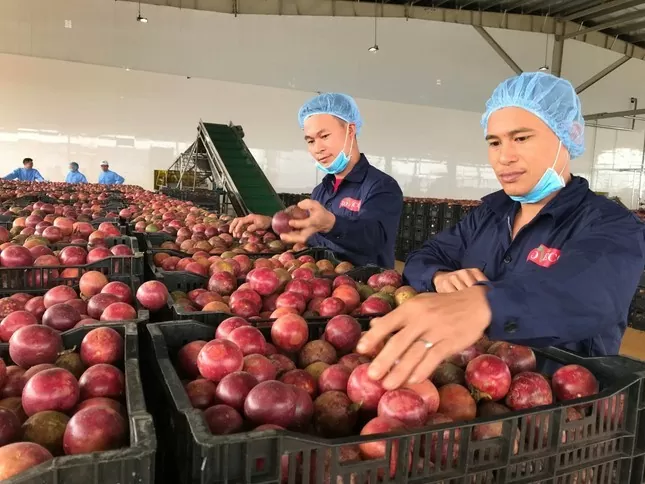

![[Photo] Close-up of Tang Long Bridge, Thu Duc City after repairing rutting](https://vphoto.vietnam.vn/thumb/1200x675/vietnam/resource/IMAGE/2025/5/19/086736d9d11f43198f5bd8d78df9bd41)
![[Photo] President Luong Cuong presents the 40-year Party membership badge to Chief of the Office of the President Le Khanh Hai](https://vphoto.vietnam.vn/thumb/1200x675/vietnam/resource/IMAGE/2025/5/19/a22bc55dd7bf4a2ab7e3958d32282c15)
![[Photo] Panorama of the Opening Ceremony of the 43rd Nhan Dan Newspaper National Table Tennis Championship](https://vphoto.vietnam.vn/thumb/1200x675/vietnam/resource/IMAGE/2025/5/19/5e22950340b941309280448198bcf1d9)
![[Photo] General Secretary To Lam attends the conference to review 10 years of implementing Directive No. 05 of the Politburo and evaluate the results of implementing Regulation No. 09 of the Central Public Security Party Committee.](https://vphoto.vietnam.vn/thumb/1200x675/vietnam/resource/IMAGE/2025/5/19/2f44458c655a4403acd7929dbbfa5039)

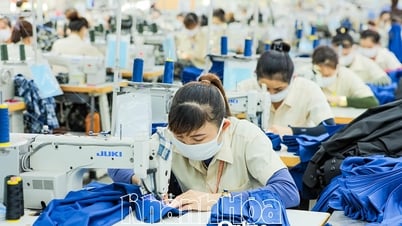



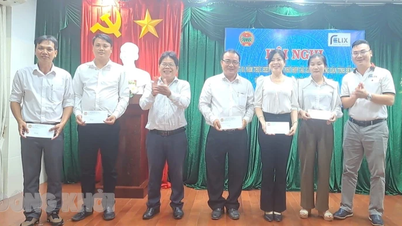

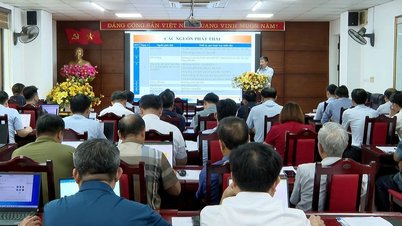
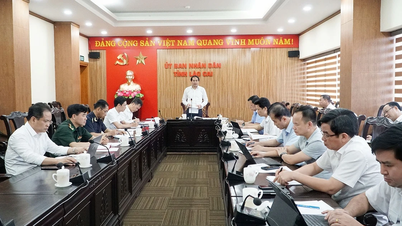
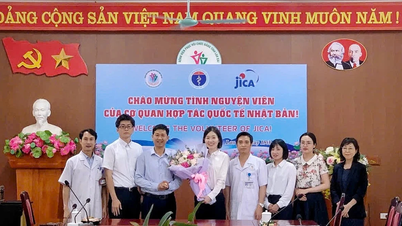




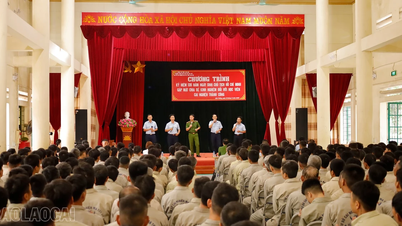
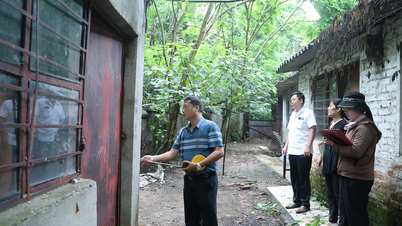
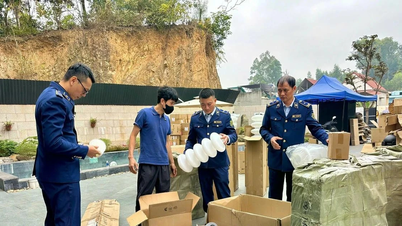
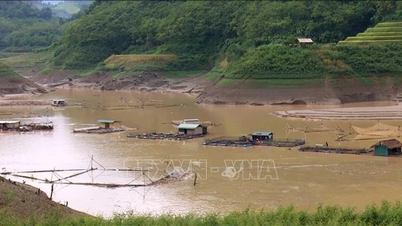

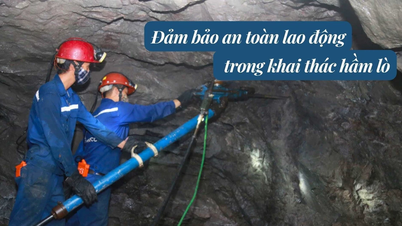
![[Photo] Prime Minister Pham Minh Chinh inspects the progress of the National Exhibition and Fair Center project](https://vphoto.vietnam.vn/thumb/1200x675/vietnam/resource/IMAGE/2025/5/19/35189ac8807140d897ad2b7d2583fbae)
















































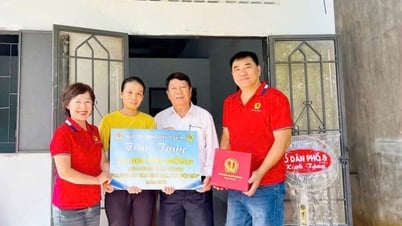

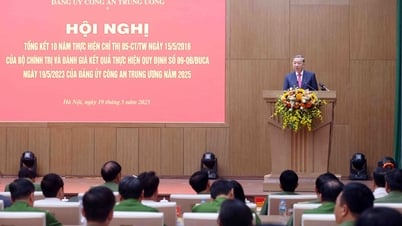



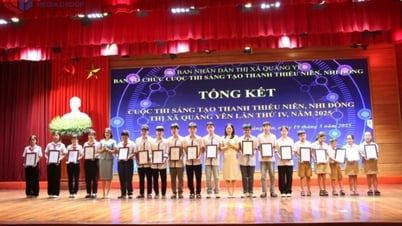





![[VIDEO] - Enhancing the value of Quang Nam OCOP products through trade connections](https://vphoto.vietnam.vn/thumb/402x226/vietnam/resource/IMAGE/2025/5/17/5be5b5fff1f14914986fad159097a677)




Comment (0)